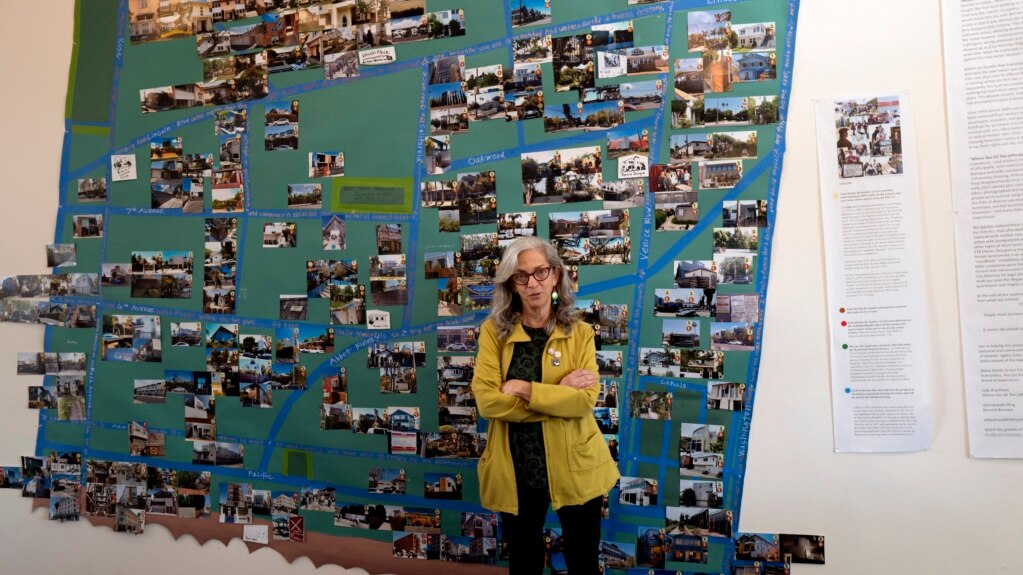More and more of Judy Branfman’s friends and neighbors found themselves unable to afford housing in Venice Beach, a neighborhood in Los Angeles.
So, Branfman began photographing the houses and apartments being sold, renovated, and then resold at two or three times the cost.
Branfman thought she should be recording the growing problem of evictions and housing in Venice Beach. The writer and activist was disappointed that Venice is losing what made it an interesting, artistic neighborhood to her.
Her photo project has gained some attention. Earlier this year, Branfman started hosting community meetings where residents could share their experiences with evictions that caused them to become homeless. Some people read poems. Others expressed themselves through paintings. They started gathering information on housing and evictions.
Branfman's idea to take a few photos became an art exhibit called “Where Has All The (affordable) Housing Gone?”
“The idea was to illustrate the problem, to show what we've lost,” Branfman said.
Venice Beach became a center of the homelessness crisis during the coronavirus pandemic in Los Angeles. The nation’s second-largest city has an estimated 46,000 people who are homeless in a population of 4 million people.
Venice Beach has been popular for the arts for a long time. But people noticed the difference between rich and poor there as technology companies moved in and people started building costly, modern homes.
The nonprofit group Angeleno Project said that about 80 percent of low-income Los Angeles renters pay over half their income toward housing costs.
At Branfman's exhibit, her photos are displayed on a large and detailed map. The map shows many of the nearly 1,500 rent-controlled homes she said have been lost from the housing market in Venice over 20 years. In some cases, the buildings were sold to large corporations that are buying up properties and increasing rents.
The map and the exhibit say part of the problem is a law called the Ellis Act. The 1985 California law gave apartment owners power to evict tenants in rent-controlled buildings for redevelopment. Owners can then later require higher rents for the same apartments. “Rent-controlled” means that rents are limited by law.
Branfman said she suffered because of the law when she was evicted from a Venice Beach apartment in 2003.
“Too many tenants are afraid to fight back. And most don't know what their rights are under the law,” she said. Even when tenants do bring complaints, she said, the city very rarely deals with the claims.
Branfman and other housing activists are hopeful that change could come with a measure that will be voted on in 2024. The measure would expand local control by overturning a 28-year-old law that bans rent control on single-family homes, condominiums and rental properties that were built after 1995.
I’m Jill Robbins.

